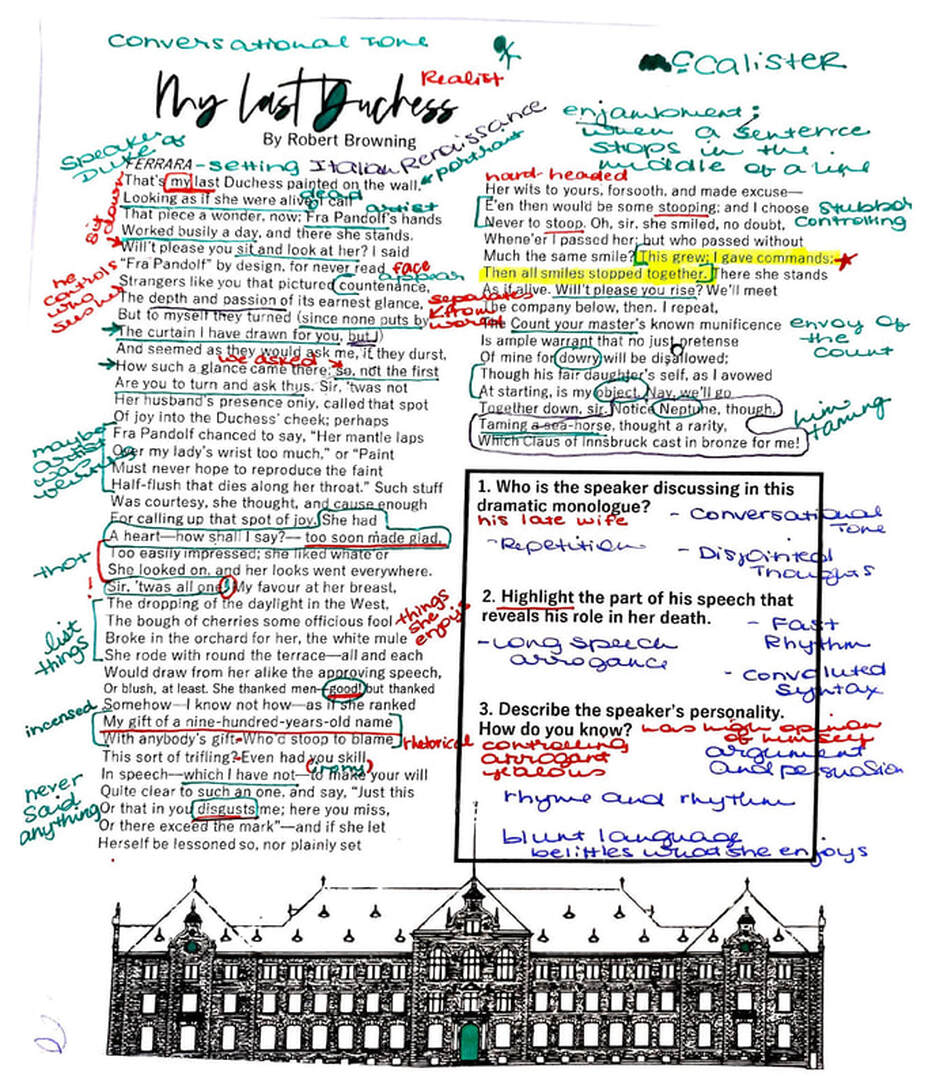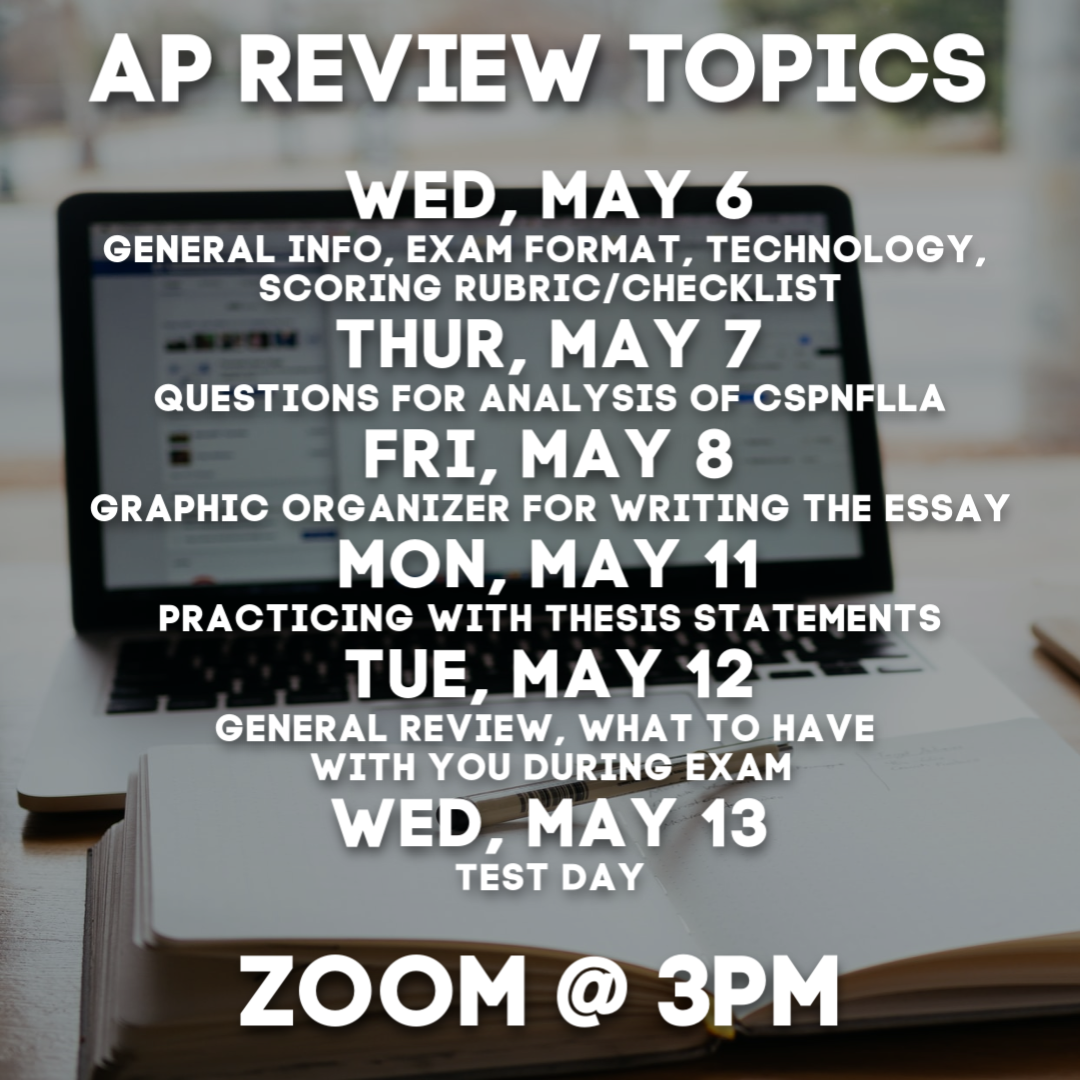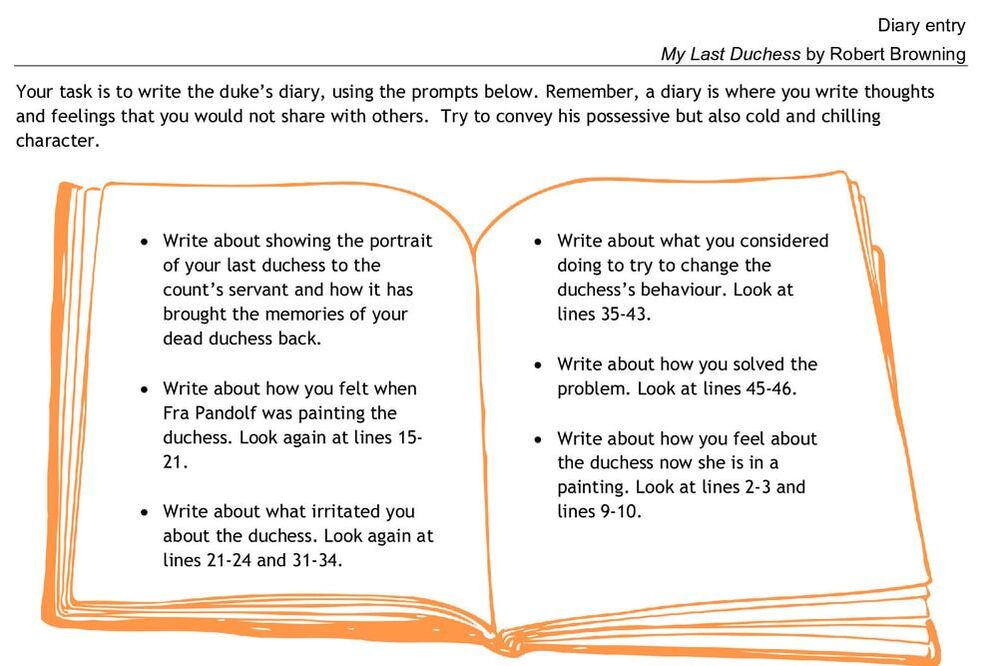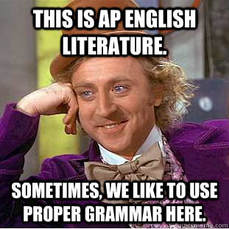Resources
|
May 4, 2020: Latest Info that Teachers Have Received from APShare the 2020 AP Testing Guide (.pdf/10.37 MB) and watch the overview video. The comprehensive guide will help you walk your students through exam preparation, and the video gives a high-level overview of this year's exams.
Encourage your students to practice with the exam demo. You and your students now have access to an exam demo. Students should use the demo to practice the different ways to submit exam responses. World language students will be able to practice with the AP World Languages Exam App beginning the week of May 11. Share the required and recommended resource list with your students. Make sure your students know what resources they can use during their exams and how they can access them. Two Days Before Each ExamConfirm that registered students have located their e-ticket. Two days before each exam, students will receive an email with their unique exam e-ticket that includes their AP ID. On exam day, students will use their e-ticket to access the exam. If a student hasn't received their exam e-ticket by email, they can access it through their student account on My AP. E-tickets are nontransferable and shouldn't be shared with anyone. Students who haven't been receiving College Board emails still have time to confirm their contact information. Remind your students to complete the AP Exam Day Checklist (.pdf/513.39 KB) for each exam they're taking. Students should complete this checklist and keep a printed or handwritten copy with them for reference during testing. Completing the checklist will help students feel confident they're set up for success. On Exam DayRemind students to click their e-ticket to check in 30 minutes before exam start time. Students should allot 80 minutes for each exam—30 minutes to enter their AP ID, name, and other information, and 50 minutes to draft and submit their responses. Make sure your students know their local testing time, since each subject's exam will be taken simultaneously worldwide. Ensure your students know what to do if something goes wrong. If a student accidentally closes the browser, their device crashes, or they temporarily lose internet access, they can quickly click their exam e-ticket again to return to the exam. They should continue the exam, and if they feel at the end of the exam that the temporary disruption negatively impacted their performance, they can request approval to take the makeup exam at cb.org/requestmakeup. Students can also request a makeup exam if they've lost too much time due to a technical problem, can't connect to their exam, or experienced some other serious disruption. This week, Online AP Classes and Review Sessions will focus on the exam day experience and review new sample questions for all nonportfolio courses. These sample questions are available on each subject's course page. | ||||||||||||||||||||||||||||||||||||||||||||||||
April 24, 2020 Updates
|
Stuff We Need to Make Sure About
Encourage your students to review their contact information. To ensure your students are receiving critical information, make sure they log in to My AP to remind themselves of the email address and cell phone number they’ve asked the College Board to use. If they want, students can change how we contact them. Two days before each exam, students will receive an email with a personalized e-ticket that will include their eight-character AP ID code. If a student still doesn’t receive the email, they’ll be able to access their e-ticket directly through My AP. Confirm student completion of the exam readiness checklist for your subject. Please plan to distribute the checklist to your students after receiving it on April 28. The related exam guide PowerPoint slides will enable you to walk students through this essential preparation for testing. Practice submissions through the exam demo. Educators and students will have access to a demo of the exam experience. It will allow students to click through to practice the different ways to submit their responses. The demo will be generic across subjects, and not a practice exam. Date Lesson Title Monday, April 06, 2020 Prose Review - Characterization Tuesday, April 07, 2020 Prose Review - Setting Wednesday, April 08, 2020 Prose Review - Structure (Plot) Thursday, April 09, 2020 Prose Review - Point of View/Narrator Friday, April 10, 2020 Prose Review - Contrasts & Figurative Language Monday, April 13, 2020 Prose Review - Exploring Contrasts in Characters Tuesday, April 14, 2020 Prose Review - function of setting in a narrative. Wednesday, April 15, 2020 Prose Review- Unpacking Symbolism Thursday, April 16, 2020 Prose - Narration Friday, April 17, 2020 Writing Claims and Providing Concrete Evidence Monday, April 20, 2020 Deconstructing Prompts Tuesday, April 21, 2020 Writing Effective Thesis Statements Wednesday, April 22, 2020 Developing Claims to Support a Thesis Thursday, April 23, 2020 Choosing Evidence to Support Claims Friday, April 24, 2020 Good Commentary (Analysis vs. Summary) Monday, April 27, 2020 Establishing a Line of Reasoning Tuesday, April 28, 2020 Deconstructing Prompts and Close Reading Wednesday, April 29, 2020 Review Student Samples Effective Writing Thursday, April 30, 2020 Deconstructing Prompts and Close Reading Friday, May 01, 2020 Review Student Samples for Effective Writing |
Test Info
Test date and time - Exam Date: May 13, Central Time: 1 p.m. Exam timing: Students will be given 45 minutes to read and respond to Question 1 and then 5 minutes to upload their response. Questions: Question 1 (45 mins.) Prose Fiction Analysis Question description: This question presents students with a passage of prose fiction of approximately 500–700 words, and assesses students’ ability to do the following: Respond to the prompt with a thesis that presents a defensible interpretation. Select and use evidence to support a line of reasoning. Explain how the evidence supports a line of reasoning. Use appropriate grammar and punctuation in communicating an argument. Corresponding free-response question (FRQ) type in the course and exam description binder The single question on the 2020 AP English Literature and Composition Exam is a Prose Fiction Analysis question, which is FRQ 2 on a traditional AP Exam and in the CED. It is referred to as Question 1 because the 2020 exam has just that one question. The prompt will not include the title and author of the passage. Otherwise, the prompt will match the stable prompt language found in the CED. Units eligible for 2020 exam Make-up test date and time- Date: June 2, Central Time: 11 a.m. |
Your browser does not support viewing this document. Click here to download the document.
Getting Ready for AP2020: Question 2 Resources
| frq2_list.pdf_·_version_1 | |
| File Size: | 499 kb |
| File Type: | frq2 list.pdf · version 1 |
AP Activities for My Last Duchess
Open a new GoogleDocument on which to complete the following activities. Please title the document LastName_MLD_Activities and share it with me at [email protected].
Activity 1: Duke's Extraordinary Playlist. You may have seen the show Zoey's Extraordinary Playlist on television recently. (I have included a trailer for the show so you can get the idea.) Use what you know about the Duke, the Count's envoy, and the Last Duchess to find a song that you believe each would be singing in his/her head. Your response should include the character's name, the title and artist of the song, and the lines of the song you feel most describe what the character might be thinking. Then, find the song on YouTube and copy and paste the link next to the your response.
Activity 1: Duke's Extraordinary Playlist. You may have seen the show Zoey's Extraordinary Playlist on television recently. (I have included a trailer for the show so you can get the idea.) Use what you know about the Duke, the Count's envoy, and the Last Duchess to find a song that you believe each would be singing in his/her head. Your response should include the character's name, the title and artist of the song, and the lines of the song you feel most describe what the character might be thinking. Then, find the song on YouTube and copy and paste the link next to the your response.
|
|
|
Activity 2: The Duke's Diary. Your task is to write the duke's diary, using the prompts below. Remember, a diary is where you write thoughts and feelings that you would not share with others. Try to convey his possessive but also cold and chilling character. In your document response, label each new answer as Entry #1, Entry #2, Entry #3, etc. (Please do not embarrass yourself by making brief, bare-minimum responses. Be creative and expressive.)
Activity 3: Critical Lenses. Below you will find two files. The first file is a refresher on the critical theories/lenses that we discussed at the beginning of the year. The second file is a list of multiple choice questions with possible answers. Please identify what critical theory or lens is being applied to the text.
Here is an example:
1. The poem "My Last Duchess" (complete text) is termed a "dramatic monologue" because
A. it contains three formal elements: an occasion, a speaker, and a hearer. FORMALIST THEORY
B. all its words are heard--and are intended to be heard--by an implied auditor. FORMALIST THEORY
C. in it we hear only one voice--and as is typical of pre-twentieth-century verse that voice is male.FEMINIST THEORY
D. rather than being "narrative," by virtue of its scansion and diction it appears to have been excerpted from the body of a verse drama such as a play by Shakespeare. STRUCTURALIST THEORY
Here is an example:
1. The poem "My Last Duchess" (complete text) is termed a "dramatic monologue" because
A. it contains three formal elements: an occasion, a speaker, and a hearer. FORMALIST THEORY
B. all its words are heard--and are intended to be heard--by an implied auditor. FORMALIST THEORY
C. in it we hear only one voice--and as is typical of pre-twentieth-century verse that voice is male.FEMINIST THEORY
D. rather than being "narrative," by virtue of its scansion and diction it appears to have been excerpted from the body of a verse drama such as a play by Shakespeare. STRUCTURALIST THEORY
|
YOUR CHOICES OF CRITICAL THEORIES
FORMALIST ARCHETYPAL FEMINIST MARXIST NEW CRITICISM PSYCHOLOGICAL READER RESPONSE DECONSTRUCTIONIST HISTORICAL STRUCTURALISM |
| ||||||||||||

Here you will find notes/annotations from the poem which we did in class. Refer to the notes if you need to as you complete activities about the poem.
|
In many ways the AP English IV curriculum aligns with the core English IV timeline. However, there are certain aspects of instruction which are particular to Advanced Placement.
On this page, you will find information which extends or enhances the basic English IV work. This page addresses points at which the two classes may diverge in content, context, or subject. |







